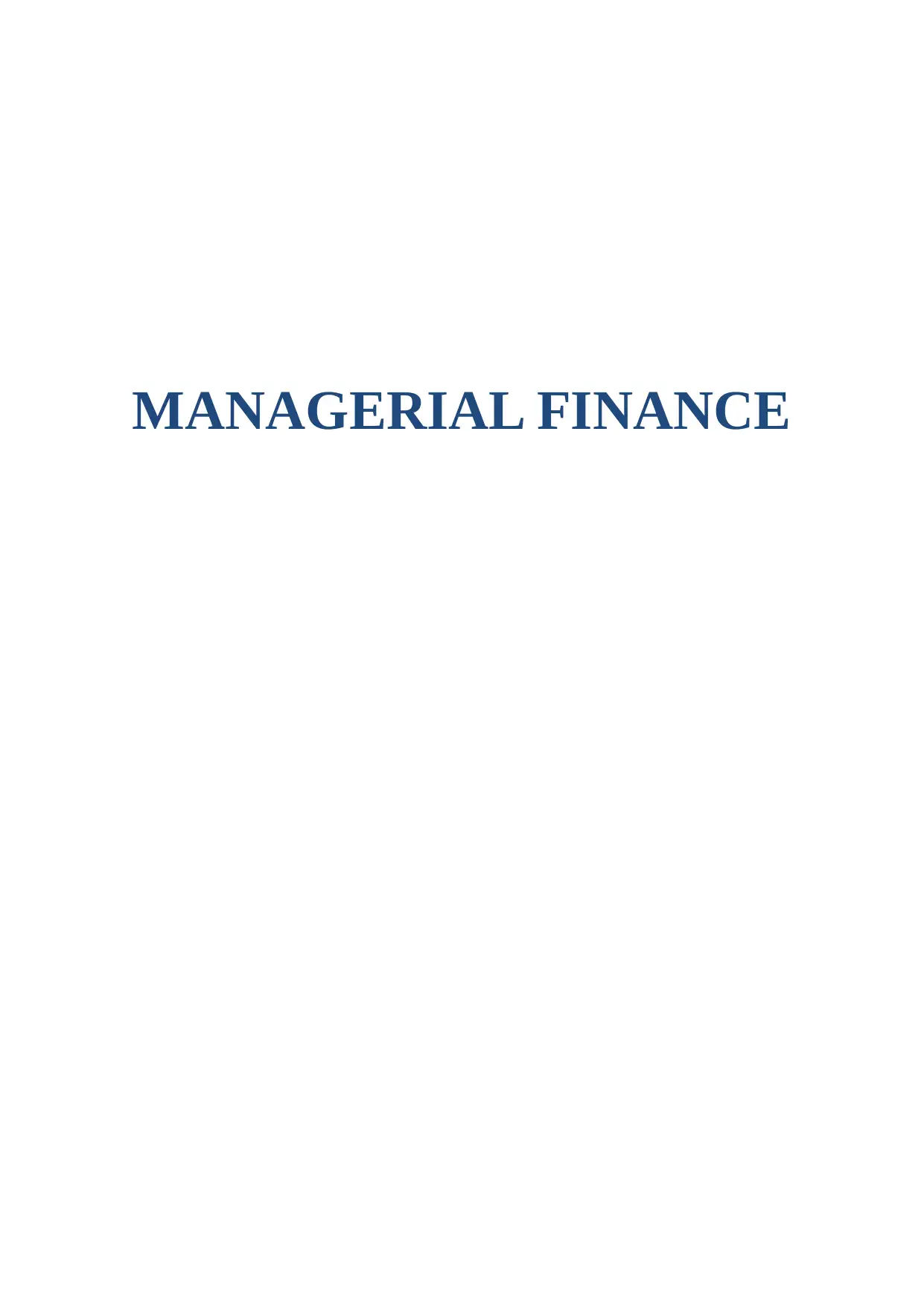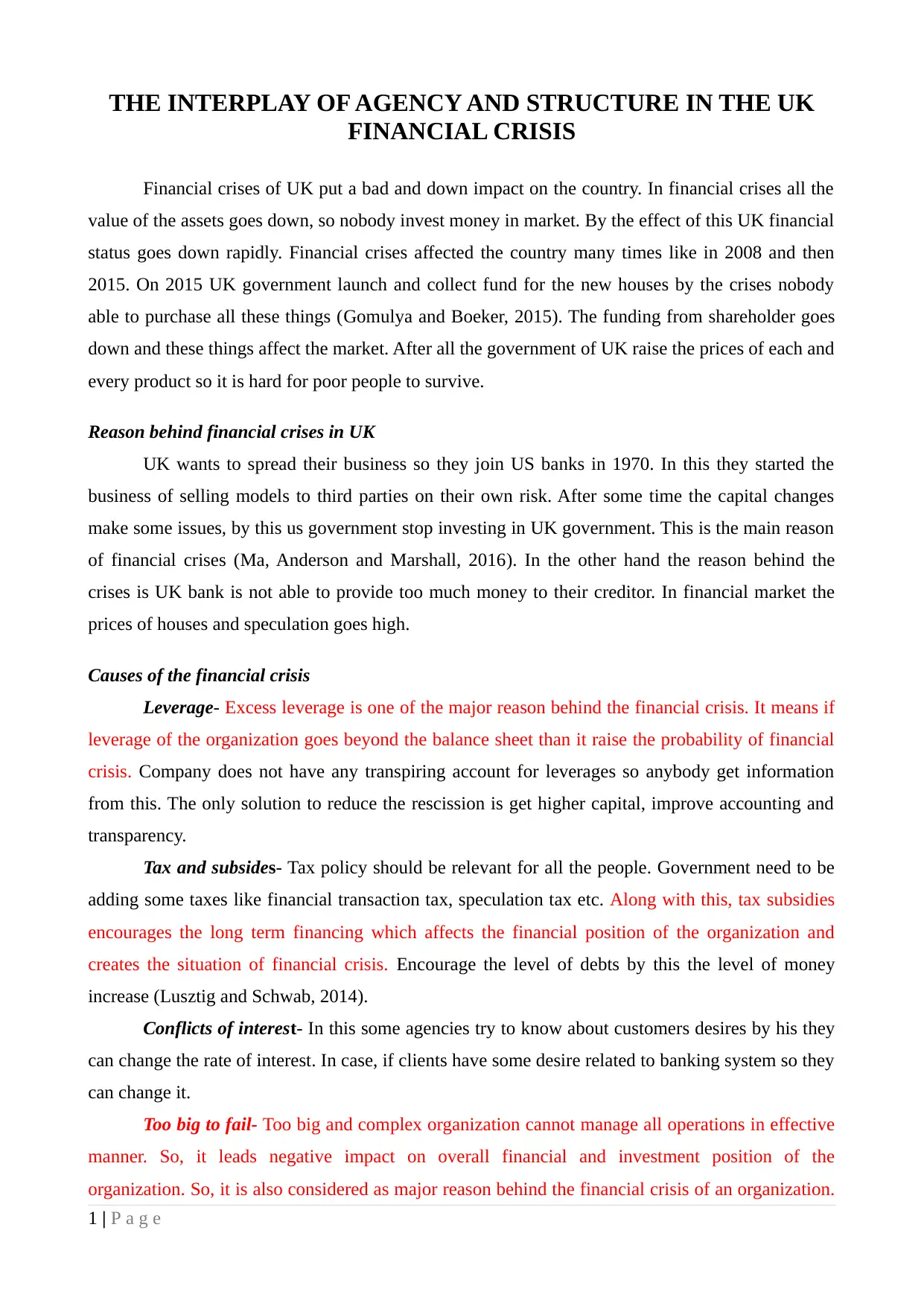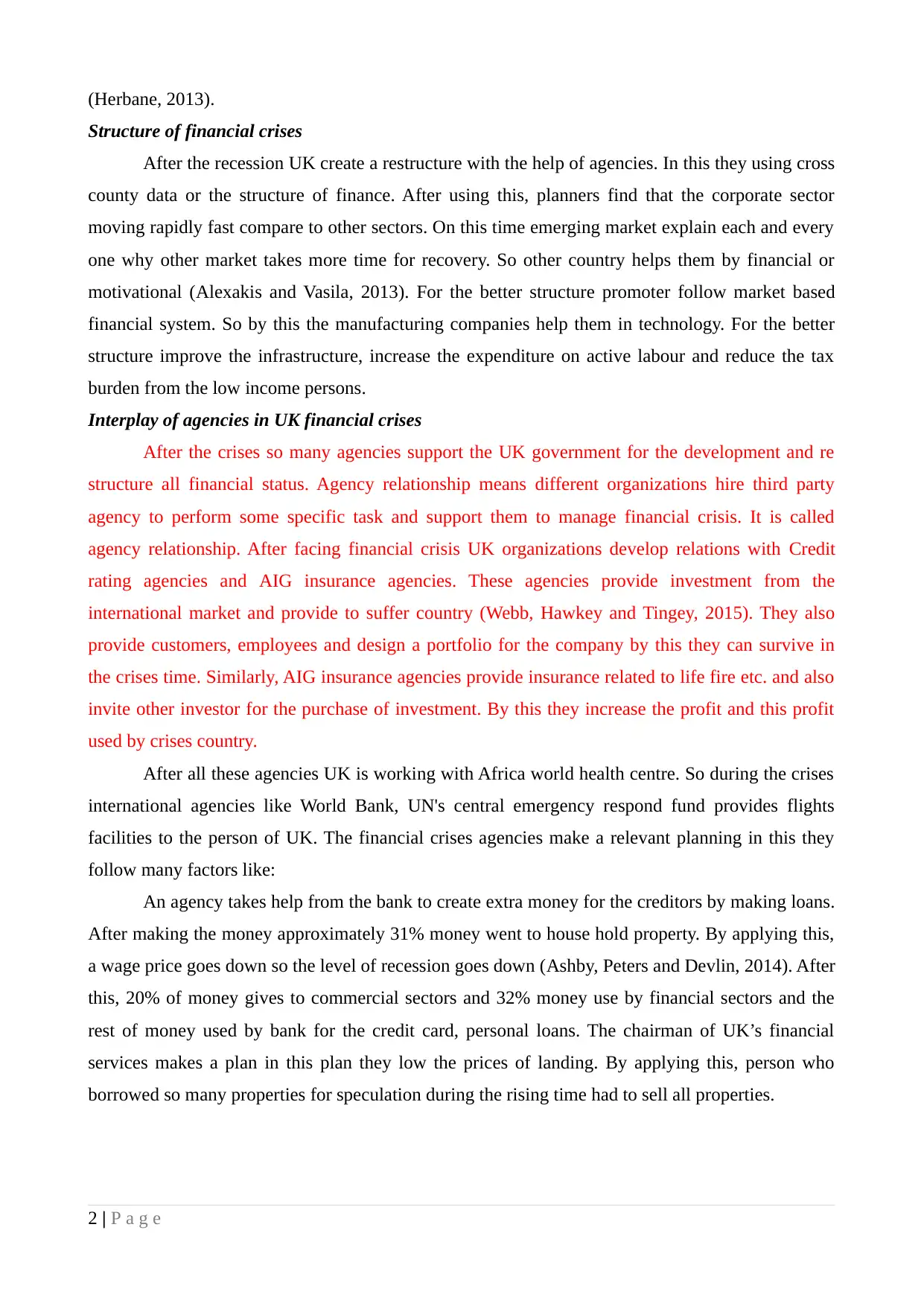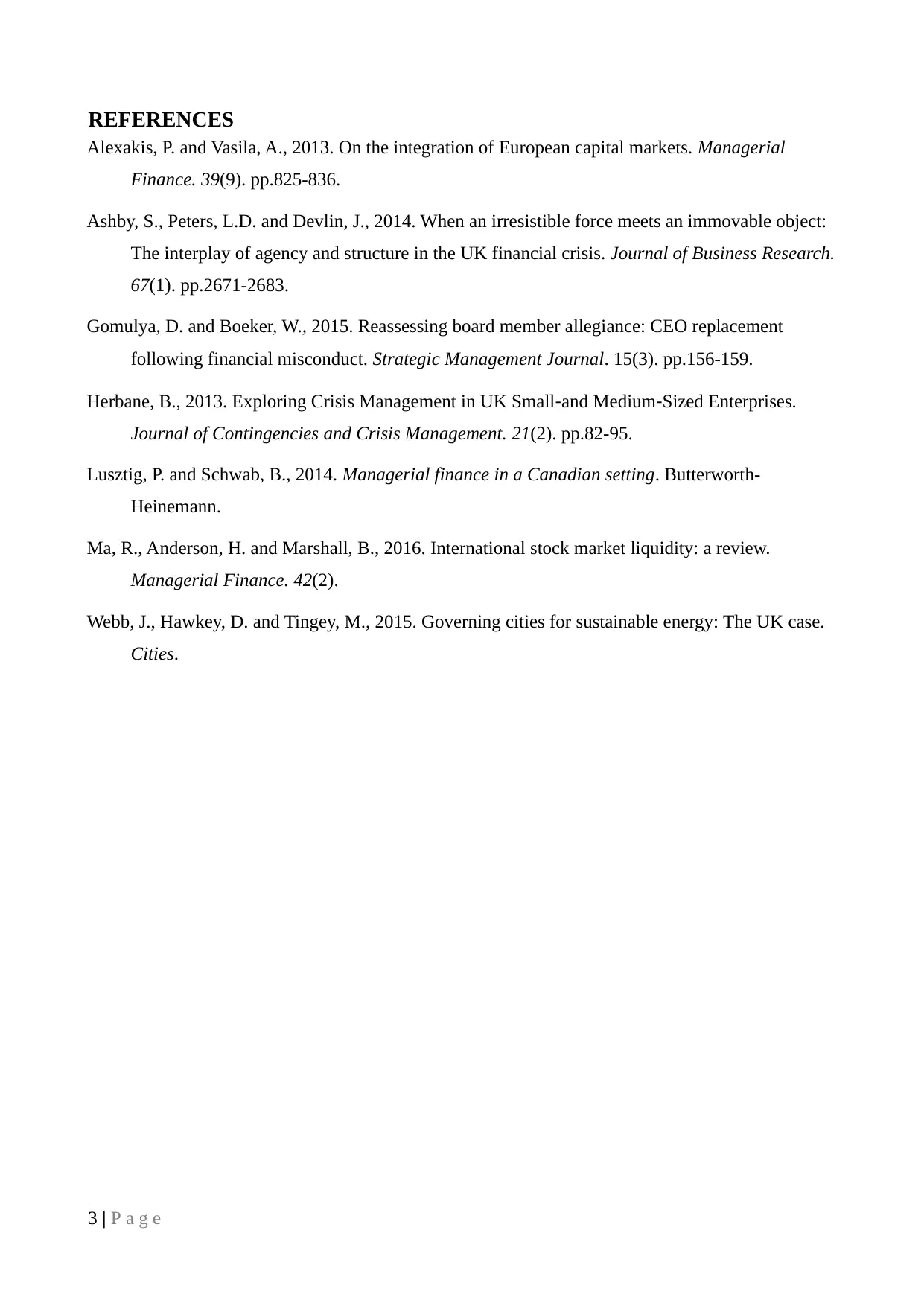Managerial Finance: The Interplay of Agency and Structure in UK Crisis
VerifiedAdded on 2020/02/03
|4
|1183
|33
Report
AI Summary
This report provides an in-depth analysis of the UK financial crisis, focusing on the interplay of agency and structure. It begins by outlining the impact of the crisis, including the decline in asset values and its effects on investment and government finances. The report then delves into the root causes of the crisis, such as the UK's involvement with US banks in the 1970s, issues with capital changes, and the inability of UK banks to provide sufficient credit. Key factors contributing to the crisis, including excessive leverage, tax and subsidy policies, conflicts of interest, and the 'too big to fail' phenomenon, are examined in detail. The report further explores the restructuring efforts undertaken after the recession, highlighting the use of cross-country data and market-based financial systems. The role of various agencies in supporting the UK government during the crisis is also discussed, including credit rating agencies and insurance agencies like AIG. The report concludes by analyzing the financial planning strategies employed during the crisis, such as the provision of loans and adjustments to interest rates.
1 out of 4











![[object Object]](/_next/static/media/star-bottom.7253800d.svg)